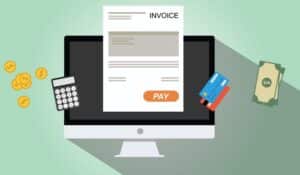
Invoicing and billing are crucial as they enable businesses to generate revenue and maintain financial records. Invoicing refers to sending customers a detailed bill or statement for goods or services rendered. Accurate and timely invoicing ensures customers know the amount due, payment terms, and payment methods. As a result, it helps to avoid payment delays and disputes, and it also improves the cash flow of the business.
In contrast, billing records payments received and sent. And reminders to customers who have yet to pay. Invoicing and billing play a vital role in the financial management of a business.
Effective billing ensures that payments are recorded accurately and reminders are sent to customers who have yet to pay. All this helps the company track its accounts and ensure that payments are collected on time. A well-designed and professional invoicing and billing can improve the overall customer experience, which defines the success probability of a business. This blog post will guide you on effectively managing your invoicing and billing operations to make your business achieve great targets.
Useful Invoicing and Billing Tips for Small Business
Following are some of the valuable guidelines that you should follow to cope with your invoicing and billing operations:
Create A Professional Invoice Template
It is the most essential and fundamental part of the invoicing process. You should design a professional invoice generator free template with all the mandatory details and boxes integrated into that, such as client name, address, due date, company logo, etc.
Therefore, you should hire a professional designer to get a customized invoice template for your business. However, if you don’t have many resources, you can use an invoice maker to get your hands on various templates. An invoice generator app or accounting software has numerous pre-made invoice templates related to every business niche. You can select any of them that fascinate you, make a few adjustments, and you would be good to go.
Set Clear Payment Terms
Setting clear payment terms can help avoid confusion and customer disputes. First, clearly outline your payment terms, including the due date, acceptable payment methods, and late payment fees. Then, communicate these terms to your customers through your invoices and follow up with reminders before the due date. It will spark professionalism on your behalf and leave an impression that you strive to manage things professionally to avoid misconceptions and misunderstandings.
Send Accurate and Detailed Invoices
An accurate and detailed invoice can help avoid payment delays and clashes with your customers. Therefore, you must ensure that your invoices include all the necessary details, including the customer’s name and address, a description of the products or services provided, the date of the invoice, and the total amount due.
Moreover, your invoice is formatted correctly, and all the details are readable. To avoid such issues, try to use invoicing software as it has automated features that increase the chances of error-free invoicing.
Keep Track of Your Invoices
Keeping track of your invoices is crucial to ensure you receive timely payments. Use your invoicing software to track your invoices, including when they were sent, when they were due, and when they were paid. It will help you follow up on overdue payments and identify payment issues. It will be best to keep hard and soft copies of your invoices to have a backup to sort things out in case of any mishap. As a result, you will have a solid hold on the flow of business expenses.
Follow Up On Overdue Payments
Following up on overdue payments is essential to ensure you receive timely compensation for your services or products. That’s why you should send timely reminders to customers who have not paid on time and consider imposing late payment fees for customers who consistently pay late.
As a result, you will observe customers paying your dues on time. Otherwise, you can face disturbance in the supply chain of your business, which will bring the conversion and sales rate down.
Monitor Your Cash Flow
Monitoring cash flow is also crucial for small businesses while managing invoices and billing. First, it helps you calculate your income and expenses to manage business operations effectively.
Otherwise, any issue in the cash flow can damage the business operations, creating a huge mess. As a result, your growth can get stunted. Moreover, a regular review of your financial statements helps to identify any issues in your transactions. This assists in detecting areas where you can cut costs and make informed decisions about your business.
Automate Your Invoicing and Billing Processes
Automating your invoicing and billing processes can save you time and improve efficiency. You can use your invoicing software to automate billing processes, including sending invoices, following up on overdue payments, and generating financial reports. It will help you free up time to focus on other aspects of your business. Consequently, you will get enough time to scale your business to new levels.

